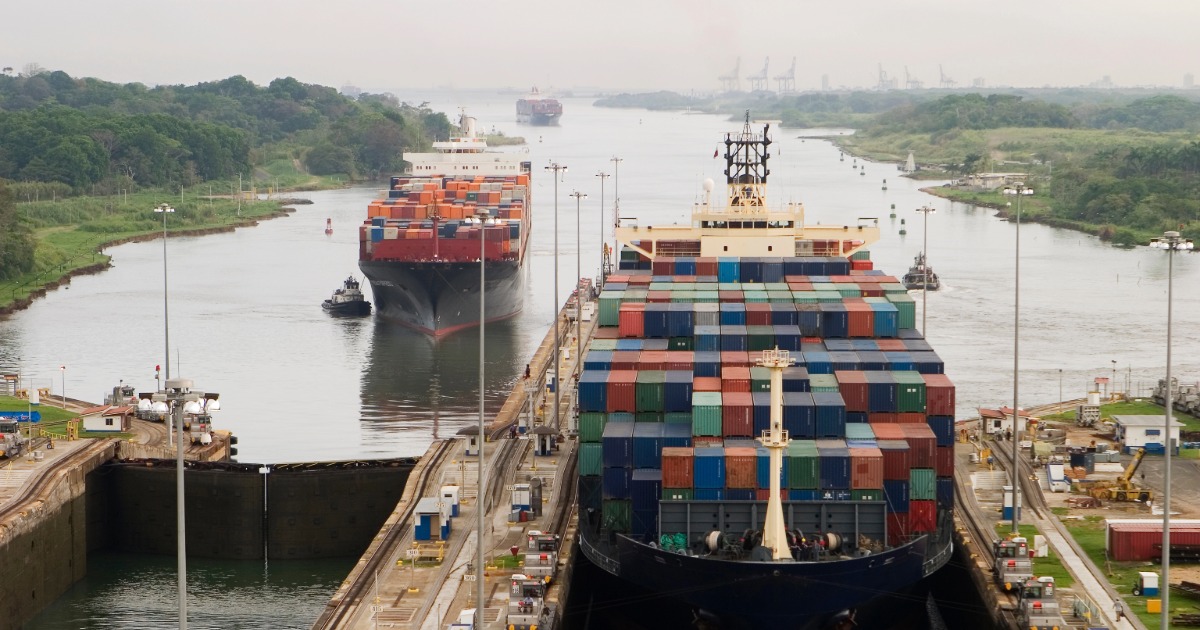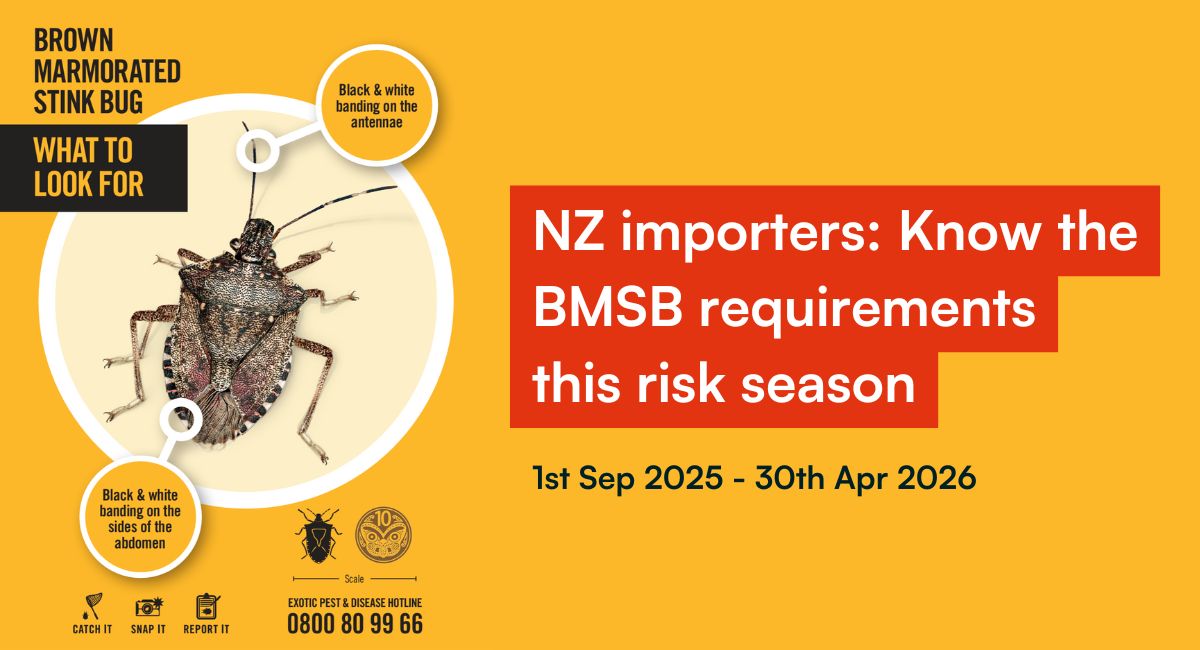Importers: Understand stink bug season compliance

Brown Marmorated Stink Bug (BMSB) is a serious pest. Check import requirements if you're bringing vehicles, machinery, parts, or sea containers, and make sure you're prepared for the start of the risk season which commences Sep 1st, 2024.
The Brown Marmorated Stink Bug (BMSB) season is fast approaching for Australia and New Zealand. The risk season for this year starts on Sunday, September 1, 2024. We encourage our clients to visit the BMSB websites for detailed and up-to-date information on seasonal measures:
- Australian Department of Agriculture, Fisheries and Forestry
- New Zealand Ministry for Primary Industries
What's new this BMSB 2024-2025 season?
For New Zealand, the main change is that offshore treatment providers can now hold certifications for three years, instead of one.
Who needs to prepare?
The seasonal measures apply to importers, ship operators, and crews involved in the movement of target risk goods (mainly vehicles, machinery, and parts) from countries with established BMSB populations.
Key Dates
- Ship before September 1st, 2024 to help avoid fumigation costs.
- Target risk goods shipped on or after September 1st, 2024, and arriving before April 30th, 2025 (inclusive) are subject to inspection.
- Vessels that berth, load, or transship from high-risk countries during this period are also included.
Compliance
Treatment Options
With some exceptions, most new and used machinery and vehicles require fumigation at the origin by an approved provider before reaching New Zealand. Italy requires treatment for all shipments regardless of commodity or container type.
Exemptions
Italy offers an exception if your VMP is loaded into a sealed container before September 1st, 2024. Proof of sealing (seal number, dated photo, and final ocean bill of lading) is required.
It is important to note that New Zealand and Australia will not conduct BMSB treatments for each other. Goods bound for Australia cannot be treated for BMSB in New Zealand, and vice versa.
Non-compliant goods, including those requiring mandatory offshore treatment, that arrive untreated or treated by an unapproved provider, are likely to be directed for export upon arrival or may not be allowed off the ship in New Zealand.
The risk status of BMSB will be continuously reviewed throughout the season, and both countries may adjust their seasonal measures based on BMSB detections.
Resources
Why is Brown Marmorated Stink Bug a problem?
BMSB (also known as Halyomorpha halys) is an agricultural pest that damages fruit and vegetable crops. While established in North America and Europe, they are not yet widespread in Australia and New Zealand.
These "hitchhiker pests" travel through international trade on ships. During winter, adult BMSB seek shelter and can hide in shipping containers, vehicles, and machinery.
BMSB information
Find a complete list of high-risk goods, schedule of affected countries, and approved treatment providers at the following MPI link: https://www.mpi.govt.nz/import/vehicles-machinery-parts/ihs-requirements-tool-for-vehicles-machinery-and-parts/
Refer to the Ministry for Primary Industries (MPI) website at the following link to see if your target goods (new or used machinery/vehicles) are listed as high-risk: https://www.mpi.govt.nz/import/vehicles-machinery-parts/brown-marmorated-stink-bug-requirements-for-importers/
In understanding and complying with these BMSB seasonal measures, we can all contribute to protecting New Zealand and Australia's agricultural industries from this invasive pest. Ship operators and crews also play a vital role by being aware of the regulations and reporting any potential BMSB detections to quarantine authorities upon arrival.
By working together, we can help prevent the spread of Brown Marmorated Stink Bug. If you’d like to discuss how we can help with your shipment get in touch with james@gatewaycargo.co.nz













%20copy.webp)
















.jpg)













